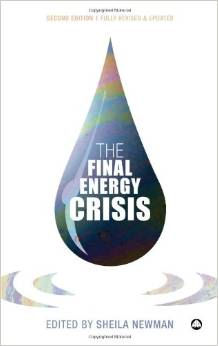About Sheila Newman, social researcher

It is hard to label me conventionally because I really write in a new paradigm, where social and physical sciences come together.
For sociologists an early start-point for my work was Catton & Dunlap. My first research thesis compared population, energy and environment policies in Australia and France. For biologists and zoologists, my theory is compatible with Richard Dawkins' work.
artist
writer
journalist
evolutionary sociologist
anthropology
multi-species population science
systems sociologist
energy, land-tenure, land-use planning, population politics and political systems
democracy and environment
comparative national systems
history
wild-spaces and biodiversity
Zoological influences include: Dawkins, E.O. Wilson, Pimentel, Lyn Margulis
Editor/author at http://candobetter.net, a multi-author website for reform in democracy, environment, population, land use planning and energy policy. We welcome new authors there and book reviews
Another page: http://independent.academia.edu/SheilaNewman
.........................................................................................................
The Demography, Territory Law Series will consist of four books:
Demography, Territory & Law: Rules of Animal and Human Populations (Published)
Demography, Territory and Law 2: Land-tenure and the Origins of Capitalism in Britain (Published)
Demography, Territory and Law 3: Land-tenure and the Origins of Democracy
in France (Due 2016)
Demography, Territory and Law 4: After Napoleon (Due 2017)
Demography, Territory & Law: Rules of Animal and Human Populations
BOOK ONE of FOUR in a series exploring population, economy and politics using radical new interpretations of evolutionary theory. How different land tenure systems may have very different outcomes for human beings and the other creatures we share the planet with. How one system can launch us into industrial capitalism and the insatiable demands of ever faster growth, dooming us to overpopulation and poverty, whereas the other system can promote steady-state economies, equity and equality. One chapter comprehensively reviews theories of human population dynamics. Two chapters look at impact on fertility opportunities of the Westermarck Effect and incest avoidance in non-human species. A final chapter compares these with kinship restrictions and non-sale of land in Pacific Islander and other traditional social systems. Subsequent books compare Britain with continental Europe, but this book helps to understand the demographic and political problems of societies after colonisation and development.
.........................................................................................................
Demography, Territory and Law2: Land-tenure and the Origins of Capitalism in Britain
Preview
Order from Lulu - ships in 3-5 days in Australia, US, UK and France.
.........................................................................................................
........................................................................................................
........................................................................................................
The Final Energy Crisis

Order from amazon.com
Sheila Newman, (Ed.) The Final Energy Crisis2nd Edition, Pluto Press, UK, 2008. This is a book of articles by scientists and an economist on energy resources, technology, prospects. It explores future scenarios with oil depletion in Australia, France, and Japan. Introduction - In The Beginning PART I: MEASURING OUR PREDICAMENT Introduction 1. Views From Hubbert's Peak, by Sheila Newman 2. Prediction Of World Peak Oil Production, by Seppo A Korpela (Ohio State University) 3. Appendix To Prediction Of World Oil Production, by Seppo A Korpela (Ohio State University) 4. The Assessment And Importance Of Oil Depletion, by Colin J Campbell 5. Coal Resources Of The World, by Seppo A Korpel (Ohio State University) PART II: GEOPOLITICS Introduction: Geodestinies And Geodeterminism, by Sheila Newman 6. The Caspian Chimera, by Colin J Campbell 7. Update To The Caspian Chimera, by Sheila Newman 8. Battle Of The Titans, by Mark Jones 9. Dark Continent, Black Gold, by Andrew Mckillop 10. The Chinese Car Bomb, by Andrew Mckillop 11. Venezuela, Chavez & Latin-American Oil On The World Stage, by Sheila Newman PART III: THE BIG PICTURE - FALSE SOLUTIONS, HOPES AND FEARS Introduction 12. No Choice But International Energy Transition, by Andrew Mckillop 13. Population, Energy And Economic Growth, The Moral Dilemma, by Ross Mccluney (University of Central Florida) 14. Renewable Energy Limits, by Ross Mccluney (University of Central Florida) 15. Peak Soil, by Alice Friedemann 16. Notes On Terra Preta, by Sheila Newman 17. Nuclear Fission Power Options, by Sheila Newman 18. Fusion Illusions, by Michael Dittmar (Swiss Federal Institute of Technology (ETH) Zurich) 19. Geothermal, by Sheila Newman PART IV After Oil Introduction 20. France And Australia After Oil, by Sheila Newman 21. North Korea: The Limits Of Fossil Energy-Based Agricultural Systems - What North Korea Tells Us About Our Future, by Antony Boys (Tohoku University, Japan) 22. How Will Japan Feed Itself Without Fossil Energy?, by Antony Boys (Tohoku University, Japan) 23. The Simpler Way, by Ted Trainer (University of New South Wales) 24. In The End: Thermodynamics And The Necessity Of Protecting The Natural World, by Sheila Newman Short Glossary Notes On Contributors Index Reviews
..........................................................................
The Growth Lobby in Australia and its Absence in France
 Masters by Research Thesis in Environmental Sociology. 248 pages plus endnotes, references and appendices
Masters by Research Thesis in Environmental Sociology. 248 pages plus endnotes, references and appendices
The Relationship between the
Property Development and Housing
Industries and Immigration Policy
in Australia and France. Chapters on history of oil economics in France and Australia. Whitlam government policy on energy resources, population, housing and development.
ABSTRACT
This thesis compares population policy and demographic outcomes in France and Australia from 1945 taking into consideration projections to 2050. These features are analysed using a theoretical approach derived from James Q. Wilson and Gary Freeman, flagging focused benefits/costs and diffuse benefits/costs of population growth,
including growth fueled by immigration. This analysis is framed by the New Ecological Paradigm developed by Dunlap and Catton.
The oil shock of 1973 is identified as a major turning point where French and Australian policy directions and demographic trends diverge, notably on immigration.
It is established that in both countries there was a will for population stabilisation and energy conservation, which succeeded in France. In Australia, however, a strong, organised growth lobby over-rode this Malthusian tendency.
A major force for growth lay in the speculative property development and housing industries. The specific
qualities of the Australian land development planning and housing system facilitated land speculation. Speculative opportunity and profits were increased by population growth and, with decreasing fertility rates, the industries concerned relied increasingly on high immigration rates. In France, to the contrary, the land development planning
and housing industries had no similar dependency on immigration and, since the oil shock, have adapted to a declining population growth rate.
The author concludes that France has a relatively Malthusian economy and that Australia has a relatively Cornucopian one. These observations may be extrapolated respectively to non-English speaking Western European States and to English Speaking Settler States.
Speculative benefits from population growth/immigration are illustrated by demonstrating a relationship between ratcheting property price inflation in high overseas immigration cities in Australia and the near absence of this inflation in low growth areas. In contrast this ratcheting effect is absent in France and French cities where population growth and immigration have little influence on the property market.
The research suggests that speculative benefits of high population growth have been magnified by globalisation of the property market and that these rising stakes are likely to increase the difficulty of population stabilisation and energy conservation under the Australian land development and planning system.
The thesis contains a substantial appendix analysing and comparing French and Australian demographic and energy use statistics.
Download entire thesis here without appendices.
Download entire thesis from Swinburne University research repository including appendices.
Note that the author's email address and website mentioned in the thesis are no longer extant. You may contact the author via candobetter.net.
................................................................................................

Recent comments